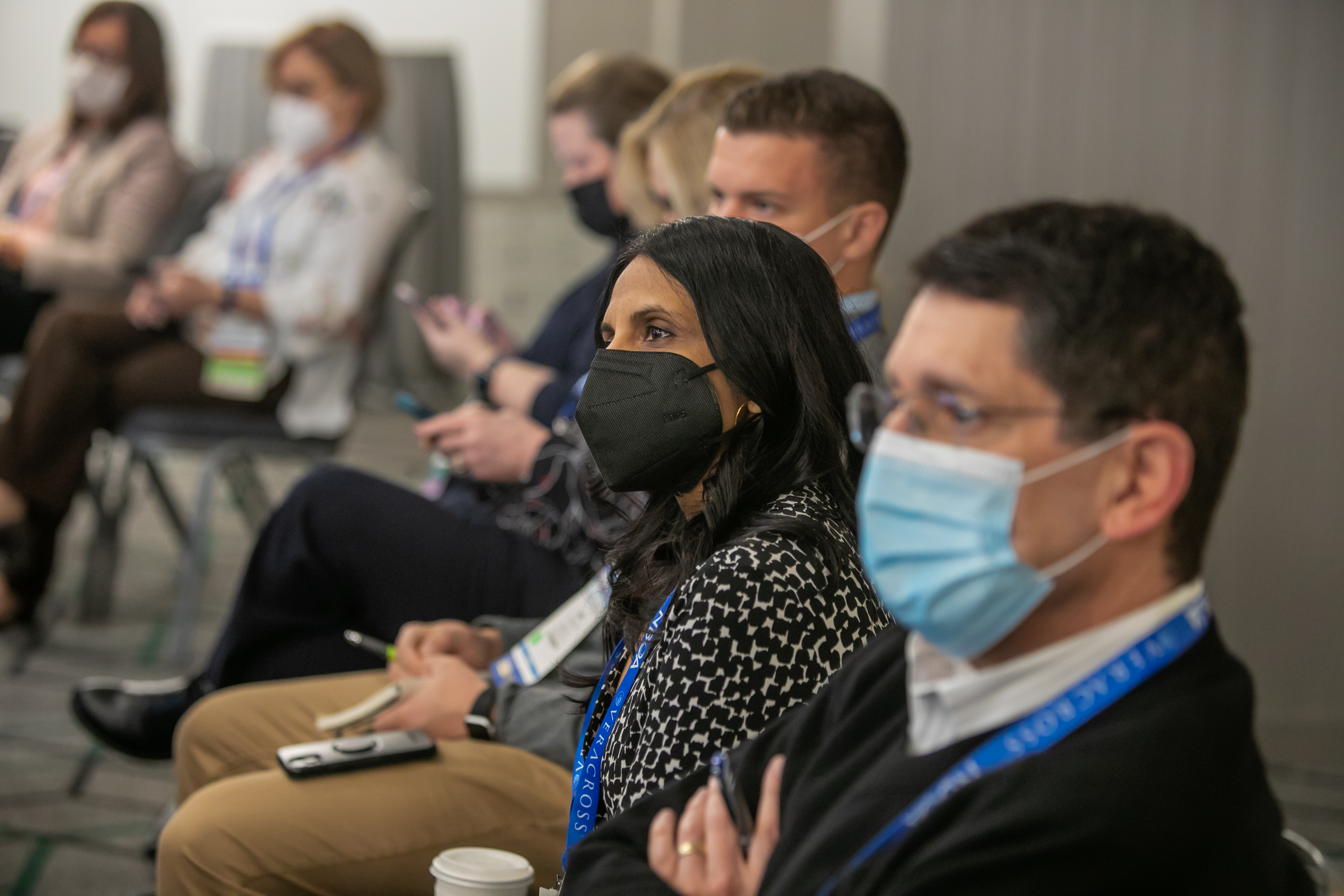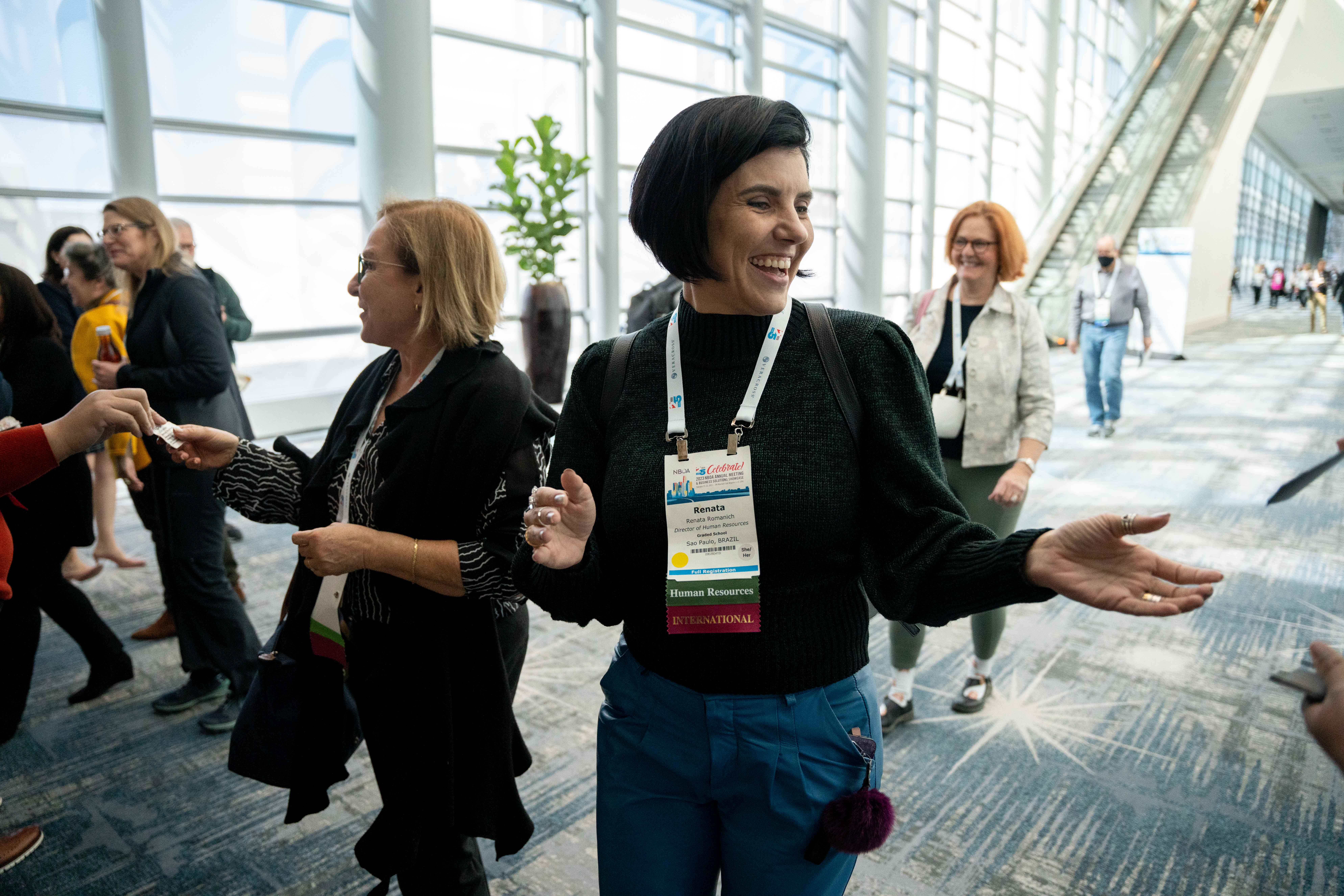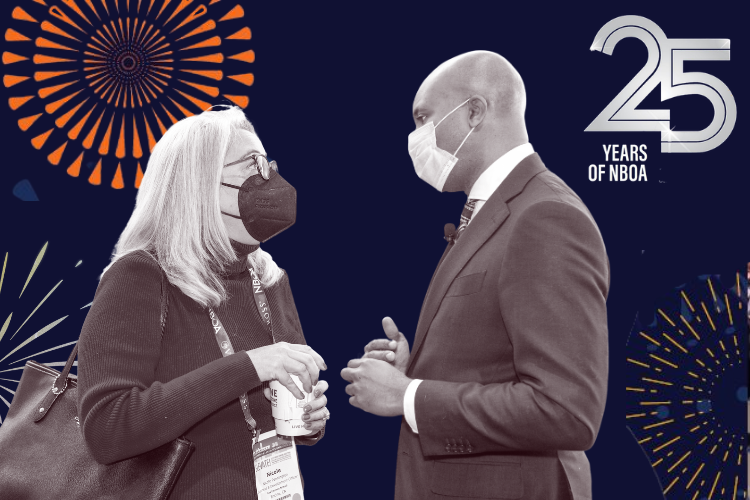Much has been said about the COVID-19 pandemic, and the incredible role that business officers and business office staff played in managing the onslaught of operational and financial changes from early 2020, which in some cases continue through today. “Thank goodness NBOA was around during the pandemic,” said one founding business officer.
While the community was helpful to all, it may bear special resonance to those who had just started in their roles at the time of the outbreak. The Maret School in Washington, DC, was among the thousands of independent schools across the country that shut its doors and transitioned to remote schooling in March 2020. Trey Holloway, Maret’s assistant head of school for finance and operations, started his role only two weeks later, having just transitioned from the corporate finance sector.
Learning the ins- and outs- of independent school finance can be like learning a new language. Add in a global pandemic, and the learning curve gets even steeper. “Having never worked in an independent school before, I didn’t realize how highly interconnected the operations side is to the rest of the school. Any small change you make – like laying concrete in the loading area behind the dumpsters – is going to have a ripple effect on kids, faculty, parents,” said Holloway.
“I wouldn’t call it isolating, but business officers are kind of on their own when they’re struggling with a problem. You can certainly talk to your head of school or your IT director, but there’s rarely someone who is in direct line of contact with the business office.” That’s where NBOA came in. He signed up for the daily digest on NBOA Connect and dove into the community boards straightaway. “Realizing that there is a whole community of folks that are dealing with the same stuff was both eye-opening and comforting.”

Holloway went on to serve on the NBOA Business Officers Council and is hoping to take advantage of in-person professional development opportunities now that the pandemic has subsided. “I finally feel like I have something that I can share with people at this point in my tenure. If we’re all sharing and helping each other, it makes the profession stronger as a whole.”
Taryn Clatanoff got a taste of that in-person connection at the 2021 NBOA Annual Meeting, where she presented the culmination of her research on wellness-infused business operations as part of the 2020-21 NBOA Leadership Academy cohort. “Obviously I saw my fellow Leadership Academy members on Zoom calls for over a year. But when we finally met for the first time, something was different. It was electric. It just clicked.”
The connections she made in the program will be lifelong, she said. “Whenever any one of the five of us [in her research group] has a question, we shoot off an email to the group and say, ‘Hey, what do you think about this?’ Or, ‘Are you struggling with this?’ That’s the first group that I’m going to send an email to because they’ve got great and also varied experiences. I’m never going to get the same answer from every person.”
The New Normal

Deana Paradis, CFO at Louisville Collegiate School, recalled the moment the term “post-pandemic” began to feel like a reality: seeing students smiling and laughing in the hallway, without the visual barrier of masks. “I had not seen a student smile in two years, and the image moved me to tears. Seeing our students radiate hope and joy is highly rewarding, and it is what brings me back to school each day.” Paradis has written for Net Assets about her experience serving on FASB’s Not-for-Profit Advisory Committee among other issues and currently serves on the Business Officers Council.
She is not alone in those emotions. Having started his role as senior vice president for administration, finance and strategic planning at Boston College High School in 2019, Michael Hoyle saw “just a glimpse” of the full student experience before the pandemic sent students and faculty home for remote schooling. When students finally returned to campus and afterschool programs started in earnest again, “it was a uniquely rewarding moment.” Hoyle is already giving back to the NBOA community through his service on the Net Assets Editorial Advisory Committee.
Now, three years of the pandemic coupled with tumultuous political and international affairs has left many business officers more cautious about the road ahead. “When I started this job in 2019, I likely wouldn’t have given much thought to having a facilities or IT inventory of certain items. But with supply chain issues and everything happening in Ukraine and Taiwan, I’m thinking about these things more now than ever,” said Hoyle.
Then there is the issue of staffing a school during a national labor shortage and the sharpest rise of inflation in five decades. “We’re doing everything we can, throwing out the kitchen sink in terms of retention, but recruitment is brutal,” said Sharp.
For Clatanoff, the answer to staffing shortages is simple: “Pay teachers not just a livable wage but one that’s appropriate for their education level and service to the school.” But doing so isn’t easy, as changes to faculty and staff compensation mean assessing other financial levers, including tuition. For the past year, Clatanoff has been developing an equitable compensation spreadsheet with the help of her head of school. “We sit down and ask questions like, If we want to raise teacher salaries by 25%, then what does tuition do? Then we do the math. It’s all tied together.”

Clatanoff’s work comes at the same time that NBOA is conducting a large-scale landscape analysis of wage and benefit systems from independent schools across the country. Deliverables from the NBOA MAX (Mission-Anchored Compensation) project are expected to be released in the fall, with not only research analysis but considerations that will help schools potentially adopt alternative models.
“Even if there is no immediate solution, just going onto NBOA Connect and seeing that everyone else is dealing with the same staffing challenges – at boarding schools, day schools, on the other side of the country – is in some ways a relief. We have a network, and we’re going to get through this,” said Sharp.
“NBOA has helped me realize that if you are searching for solutions to a problem, there is somebody else who has done that or is doing it,” added Hoyle. “As a volunteer, I’ve found welcoming and open folks who truly are interested in contributing solutions. If you can take time to tap into that, it’s really helpful.”




.png?sfvrsn=a0b06f90_1)



